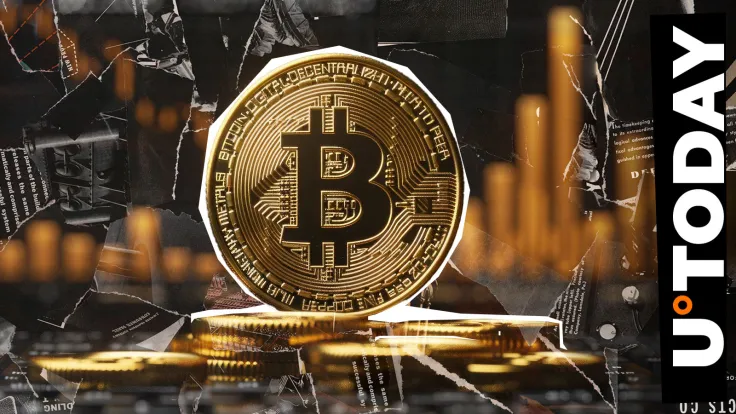
Disclaimer: The opinions expressed by our writers are their own and do not represent the views of U.Today. The financial and market information provided on U.Today is intended for informational purposes only. U.Today is not liable for any financial losses incurred while trading cryptocurrencies. Conduct your own research by contacting financial experts before making any investment decisions. We believe that all content is accurate as of the date of publication, but certain offers mentioned may no longer be available.
Popular technical analyst Gert van Lagen has opined that the price of Bitcoin (BTC), the leading cryptocurrency, could potentially surge to $300,000 based on its step-like formation.
As noted by van Lagen, the cryptocurrency is currently in the process of forming an ascending broadening wedge at Base 4.
This base tends to break to the upside most of the time. If it also ends up being the case this time around, the cryptocurrency could reach the aforementioned price target.
In addition, van Lagen claims that Bitcoin is in the process of forming an ascending broadening wedge that tends to break down 80% of the time. If a breakdown does occur, the inverted cup and handle pattern could push Bitcoin into $300,000 territory.
It is worth mentioning that the chartist's technical analysis should be taken with a huge grain of salt. For instance, van Lagen, who boasts more than 100,000 followers on the X social media platform, repeatedly predicted that the price of Bitcoin could reach $220,000 before the quadrennial halving event that took place in April.
Of course, van Lagen is far from being the only pundit who expects a massive price move in the near future. As reported by U.Today, Robert Kiyosaki, the author of "Rich Dad Poor Dad," recently predicted that the Bitcoin price could end up exploding in the near future because of the Fed's widely expected dovish pivot.
The odds of an aggressive rate cut recently grew dramatically on PolyMarket. However, the Bitcoin price remains under pressure, plunging by more than 4% over the past 24 hours.
 Dan Burgin
Dan Burgin Vladislav Sopov
Vladislav Sopov